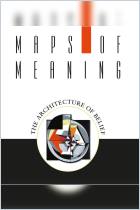Melden Sie sich bei getAbstract an, um die Zusammenfassung zu erhalten.

Melden Sie sich bei getAbstract an, um die Zusammenfassung zu erhalten.
Jared Diamond
The World Until Yesterday
What Can We Learn from Traditional Societies?
Viking, 2012
Was ist drin?
Limit your exposure to modern maladies by adopting the wise habits of primitive people in traditional societies.
Recommendation
Members of bands and tribes in traditional societies make few contributions to such scientific fields as astronomy, chemistry and physics. Their knowledge of the modern world is limited. Yet the modern world also has a limited understanding of traditional societies, for example, the !Kung tribe in Africa or the Xingu Indians of Brazil. Modern states have more sophisticated technology than any band or tribe, but this superiority does not extend to the rituals of everyday living. Traditional societies have effective, time-tested methods for raising children, resolving disputes, caring for the elderly and limiting exposure to diabetes, heart attacks and other noncommunicable diseases. Not all aspects of traditional societies are exportable to modern ones, including certain hunter-gatherers’ practice of infanticide and euthanasia. Historian Jared Diamond brilliantly details multiple realms of modern life that could learn from bands’ and tribes’ traditional approach. getAbstract recommends his comprehensive review of traditional and modern societies to academics, as well as amateur anthropologists and everyone seeking a deeper understanding of what modern people can learn from ancient ways.
Summary
About the Author
Jared Diamond, a geography professor at the University of California, Los Angeles, also wrote Collapse. His book Guns, Germs and Steel won the Pulitzer Prize.





















Comment on this summary